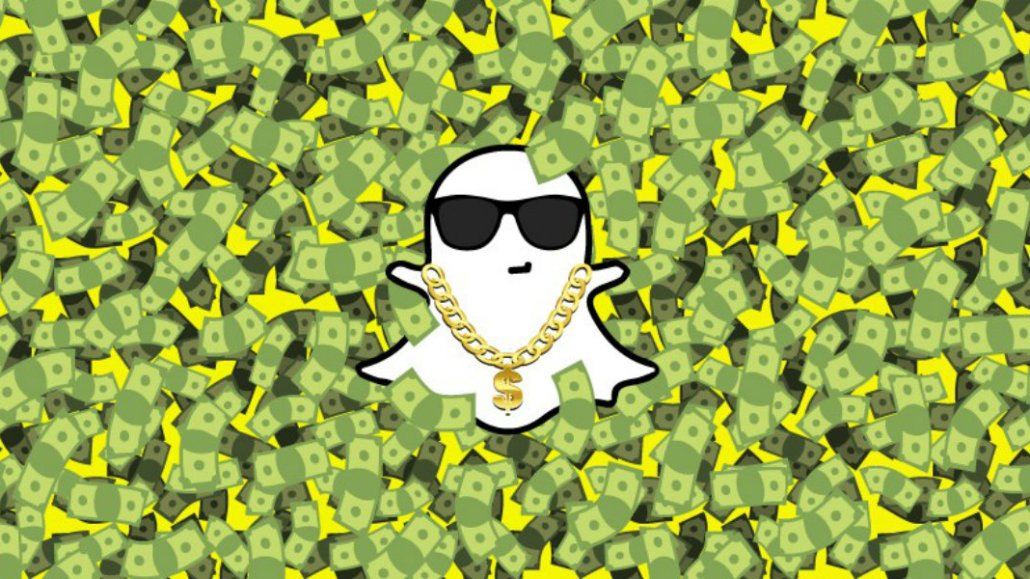Last chance to save on Digiday Publishing Summit passes is February 9

Snap made a splash in Cannes with its gigantic Ferris wheel that dominated the Croisette, but it had a different message during its many meetings with advertisers: Bigger isn’t better.
Executives urged advertisers to focus on the creativity and functionality that delight its users. Consequently, user numbers were not discussed in “any detail,” said an agency executive following his meeting, saying it “was more about audiences, who they are, what they are doing and how to target them” instead. However, this was likely due to the executive being from a creative agency and not a media shop as much as it was Snapchat’s insistence that it won’t pitch its ads on reach alone.
The one standout statistic, said the executive, was that “only (roughly) 25 percent of Snapchat’s users are below 18,” while 48 percent are between 20 and 35 years old. This wasn’t a “huge surprise,” admitted the source, but “I can see they [Snapchat] think it may be an issue in attracting some of the bigger, more mainstream advertisers.”
And yet, for many agencies the scale question remains as opposed to rival platforms. “Social media in 2017 for the majority of large brands is about scale,” said one agency chief, “and they [Snapchat] are too small and losing too much ground to Instagram and Facebook. Snapchat users do skew younger than Instagram, but it’s not certain that [Snapchat] can hold onto them as functionality and content becomes available on other platforms.”
Snapchat assured advertisers it met at Cannes that it understands their needs. The app has a reputation among some agencies for not being the best partner, which might explain why head of creative strategy Will Scougal met with many throughout the festival to show them how to create ads native to their platform, rather than force ads in from a broader campaign.
Part of his pitch, according to the agency executive, was the app’s stable of publishers and TV networks, a point of differentiation it has wanted to get across to advertisers since March. Media owners like NBC and Vice are now creating original shows — or Snapchat Shows — for the app, and the hope is that the promise of exclusive programming helps loosen the purse strings of brand budgets. Earlier this month, Snapchat convinced Time Warner to spend £79 million ($100 million) on creating as many as 10 original shows.
Enthusiasm elsewhere for Snapchat was tempered by concerns that its pivot to a self-serve model, which was the centerpiece of its announcements at Cannes this year, opens the floodgates to advertisers and therefore tests the loyalty of the ad-adverse youth audience the business so carefully tried to protect on its march toward the stock exchange. The issue was raised by the agency boss, who questioned whether Snapchat could continue to “rely on loyalty from its youth audience” should the user experience deviate too much from what separated it from rival social networks.
One brand that refuses to let those worries dim its excitement for the app is Adidas. Simon Peel, the brand’s global media director, said it would be spending more money on the app’s ads moving forward. “We have a fantastic partnership with Snapchat. They’ve been very close to us over the last two years and have helped us enormously to a point where we have some exciting things in the pipeline together,” he said. “We’ll be investing a lot more with them, particularly as they roll out easier ways of buying advertising.”
More in Media

Brands invest in creators for reach as celebs fill the Big Game spots
The Super Bowl is no longer just about day-of posts or prime-time commercials, but the expanding creator ecosystem surrounding it.

WTF is the IAB’s AI Accountability for Publishers Act (and what happens next)?
The IAB introduced a draft bill to make AI companies pay for scraping publishers’ content. Here’s how it’ll differ from copyright law, and what comes next.

Media Briefing: A solid Q4 gives publishers breathing room as they build revenue beyond search
Q4 gave publishers a win — but as ad dollars return, AI-driven discovery shifts mean growth in 2026 will hinge on relevance, not reach.








